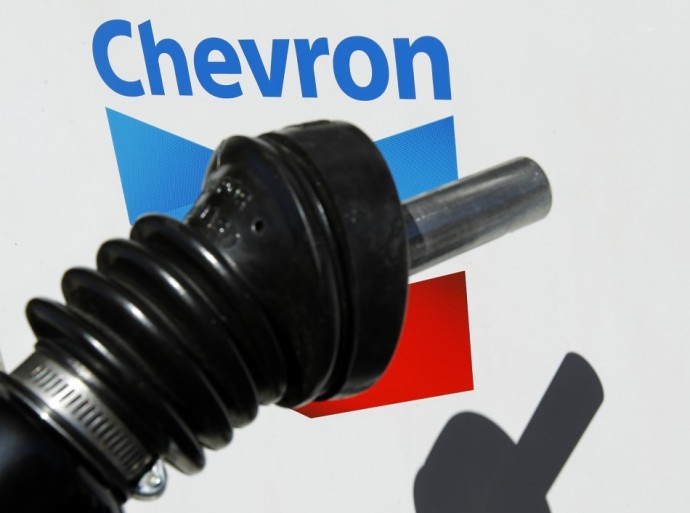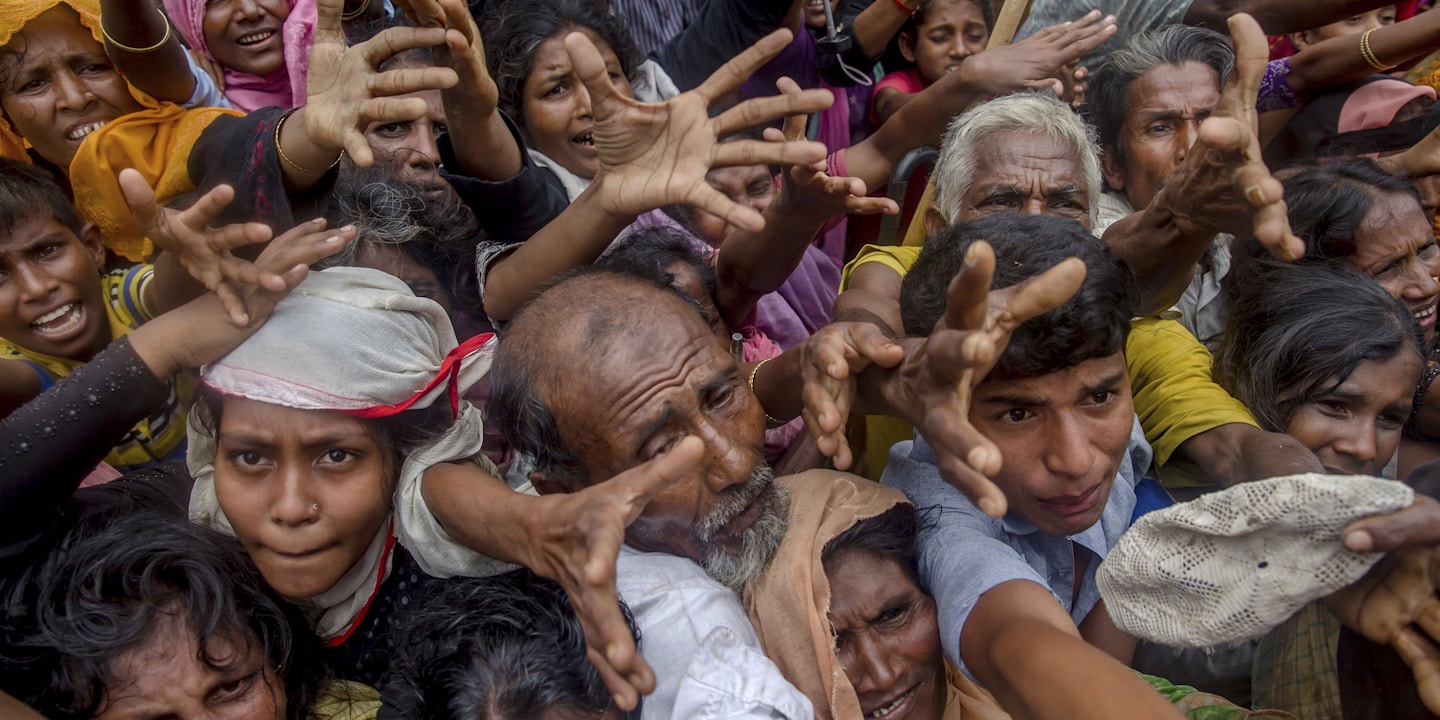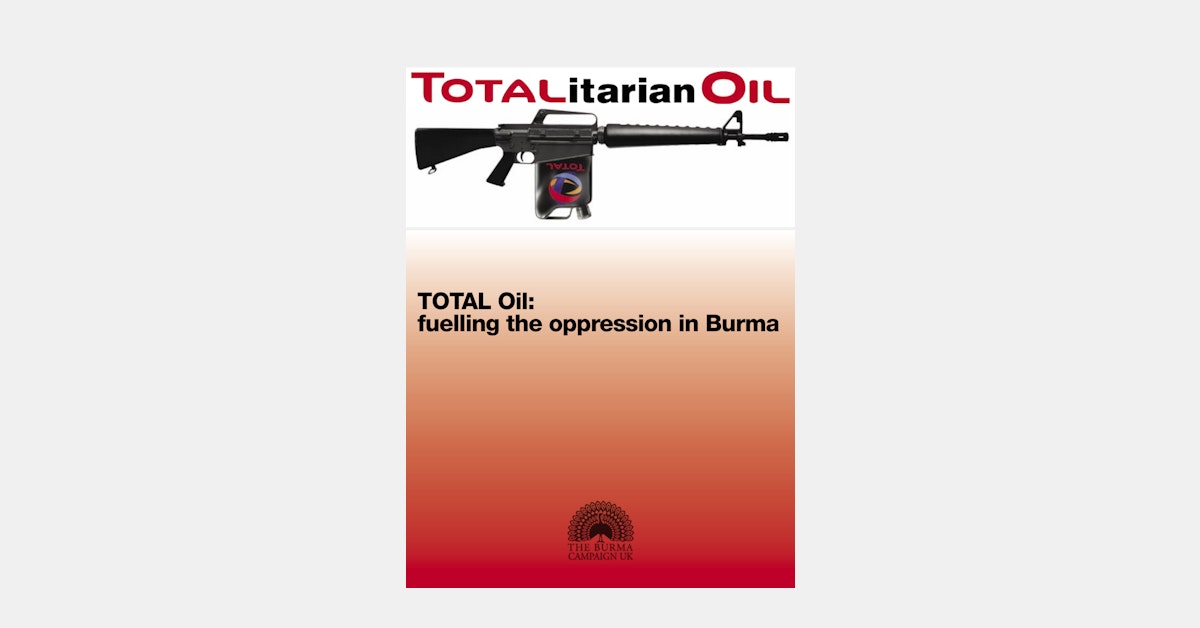
ACTION ALERT: Myanmar’s Bloody Crackdown Fueled by Chevron and Total
Rewan Al-Haddad / Sum of Us & Justice for Myanmar & The Guardian UK
(March 31. 2021) — Myanmar’s military has staged a coup and is murdering hundreds of peaceful protesters, including children — and they’re doing it with billions in support from oil and gas companies like Total and Chevron.
Oil and gas is the government’s top funder. So while the US, UK, and others place sanctions on the military, these ruthless Generals will be unfazed as long as they have the support of energy giants.
Activists in Myanmar are urgently calling on the companies to end their support to the military — let’s show that people all around the world are backing them up:
PETITION: Total and Chevron: stop supporting the bloodbath in Myanmar
Oil and gas contribute $1.1 billion a year to the now-military-controlled government. Activists are calling on companies to stop these payments and put the contributions into a conditional account, to be released when democracy is restored. We know this is feasible — it’s been done before during other global conflicts. Total and Chevron could suspend direct payments to the military, but only if there’s enough pressure to do so.
The military is proudly proclaiming they aren’t impacted by sanctions by the US, UK, and EU. That’s not only because of the continued support of China, Singapore, and others — Total paid the government at least $412 million in 2019, making them possibly the largest single backer out there.
If corporations don’t pull their funding, government sanctions will amount to nothing. Let’s help activists in Myanmar pull the plug on the military’s corporate backers:
We know companies like Total are sensitive to pressure. It’s why they hire lobbyists and PR firms in every corner of the world to control their reputations. But thousands of SumOfUs members can’t be silenced, and we will pull out all the stops to make sure execs hear our call.
Myanmar’s military is murdering peaceful protesters — and they’re doing it with billions in support from gas and oil companies like Total and Chevron.
Local activists are calling on the companies to urgently suspend payments to the military until democracy is restored — let’s show that people all around the world are backing them up.
ACTION: Sign the Petition
TO: CEOs and executives of Total, Chevron, POSCO, and all oil and gas companies operating in Myanmar
Suspend payments to the military-controlled government of Myanmar until peace and democracy are restored.
HOW OIL AND GAS MAJORS BANKROLL THE MYANMAR MILITARY REGIME

Chevron has resisted calls to divest from the Myanmar military
(February 8, 2021) —As Myanmar’s generals look for revenues to prop up their new dictatorship following the February 1 coup, there’s one source of money they can count on: natural gas projects backed by foreign investors including France’s Total and Chevron of the US, South Korea’s Posco and Malaysia’s Petronas.
Myanmar earns close to US$1 billion a year from natural gas sales.
Much of this money is not paid directly from oil companies to the government. It flows through Myanma Oil and Gas Enterprise (MOGE), a state-owned enterprise with deep links to the military’s business empire. Alarmingly, the recent military coup places MOGE and the rest of the government under direct military control.
MOGE doesn’t publish its accounts or even have a website of its own and attempts to make its activities more transparent are likely to grind to a halt.
This opacity increases the risk that gas revenue will pour into the pockets of corrupt officials, as well as be used to fuel the military regime’s international crimes against ethnic and religious minorities, including genocide, war crimes and crimes against humanity.
Investors face possible sanctions against the regime from the international community.
Justice For Myanmar calls for all businesses with commercial ties to MOGE to immediately cut ties.
If it’s business as usual, foreign investors in Myanmar’s gas will be funding an illegitimate and brutal military regime as they did before 2011, when the country was under full military rule.
The people of Myanmar have mobilised against dictatorship through a national campaign of civil disobedience and boycotts against military-owned products. Even MOGE’s own staff are publicly protesting.

Trouble for Total
The prospect of international sanctions against the military regime in Myanmar poses particular problems for Total, which operates the giant Yadana offshore gas project and owns 31.24 per cent of it.
Chevron owns 28 per cent of the project, with the rest being owned by Thailand’s PTTEP and MOGE. The partners also own stakes in a company which pipes the gas to its main market in Thailand.
Total has reportedthat it paid €229.6 million (US$257 million) to Myanmar in 2019 in taxes and the government’s share of gas production.
Total is likely to be the military regime’s single biggest source of revenue.
While the taxes are paid to Myanmar’s finance ministry, earnings from the government’s share of gas are collected by MOGE.
The Yadana project has been very profitable for Total, whose subsidiary Total E&P Myanmar reported profits before tax in 2019 of €76 million (US$85 million).*
Chevron does not publish details of its finances in Myanmar but is likely to make comparable profits on its stake in the gas project.
Total is also leading a new huge offshore gas development, known as A6, which is crucial to shoring up Myanmar’s declining gas production and would be a key source of funds for a protracted military dictatorship.
The French extractive industry giant will now have to decide whether to push ahead with this project, whose other investors are Australia’s Woodside and MPRL, a Myanmar company that is registered in the British Virgin Islands, a notorious tax haven.
Final decisions to go ahead with A6 and smaller new fields have reportedly not been taken yet.

Four Giant Gas Projects
Natural gas is Myanmar’s second biggest export after manufactured goods and almost all of the government’s hydrocarbon revenues come from Yadana and three other giant gas projects.
The most recent figures for all companies show that in the year to March 2018, Total, which operates the Yadana gas project, paid roughly US$254 million to Myanmar.
Petronas, which operates the Yetagun project, paid the equivalent of US$208 million to the government that year while South Korea’s Posco, which operates the Shwe project, paid US$194 million.
Thailand’s PTTEP, which runs the smaller Zawtika gas project, paid US$41 million.
These giant projects, which supply natural gas to Thailand and China, accounted for almost all of Myanmar’s US$737 million in oil and gas earnings in the year to March 2018. The government earned another US$300 million that year from transport fees paid by companies to use gas export pipelines, built on land confiscated from indigenous people.
Myanmar was forecast to earn 2,305 billion kyat (about US$1.5 billion) from oil and gas revenues in 2020/21, according to a budget brief from the Ministry of Planning, Finance and Industry.
The Black Hole of MOGE
Myanmar earns most of its gas revenues from sales of the government’s share of gas production, rather than from taxes. This money is collected by MOGE, which is an investor in the gas sector as well as a regulator of private companies in a systemic conflict of interest.
Revenue should be passed on to the national budget for the benefit of the Myanmar people and future generations, within a democratic system with the military under civilian control.
But MOGE, like other state companies in Myanmar, has a history of holding onto huge sums of revenue in opaque “other accounts” which are supposed to cover its own expenses. A report for the Extractive Industries Transparency Initiative (EITI) showed that as of early 2018, MOGE’s “other accounts” contained the equivalent of US$4.6 billion in revenues.
The government pledged in 2019 to shut these “other accounts” and move the money to the national treasury.
By grabbing power through a coup, the military regime has reversed these reforms so that revenues collected by MOGE from foreign oil companies will no longer be subject to even the basic scrutiny of a national budget process.
Revenue collected by MOGE will bankroll the military regime and enrich its leaders.
State oil companies in many countries have been used by autocratic regimes for off-the-books financing, as happened in Myanmar under military rule before 2011. This opacity also makes them vulnerable to large-scale corruption: a recent example is Brazil’s Petrobras, where investigations have uncovered billions of dollars in corrupt transactions.
Under the National League for Democracy-led government, MOGE boosted the profitability of businesses run by the military and its allies in recent years by selling the state’s gas to them at a subsidised rate (see MEITI’s 2016-2017 report, appendix24).
Total, Chevron and POSCO have been a key target of activists for working in Myanmar during the period of military rule before 2011 and during the genocide against the Rohingya people. POSCO is operating off the coast of Arakan State, where the military continues to commit war crimes and crimes against humanity.
The military coup has left international oil and gas companies with no option but to end their relationship with MOGE and the military government that controls it. The international community must impose immediate targeted sanctions against MOGE and all other military businesses. Hear the outcry of the Myanmar people. Act now.
* Total E&P Myanmar SAS. Exercise 2019. Compte de résultat. Accessible from www.infogreffe.fr.
Oil Companies Urged to Make Sure No Money Flows from Myanmar Projects to Military Junta

Chevron and Total called on to cease operations in country, which receives $1.1 billion a year from oil and gas, after Australia’s Woodside suspends work there
Ben Butler and Ben Doherty / The Guardian UK
(March 1, 2021) — Global oil and gas companies Woodside, Chevron and Total should make sure no money flows from projects in Myanmar to the government or be held responsible for effectively helping fund the military junta’s violent repression of the country’s people, pro-democracy advocates say.
At least 18 people have been killed by the military for participating in pro-democracy protests since the 1 February military coup, with soldiers firing live rounds into crowds of thousands demonstrating in cities across the country.
The oil and gas industry contributes US$900m (A$1.1bn) a year to the Myanmar government, which since last month has been controlled by a military that has been accused of serious human rights abuses including genocide against the ethnic minority Rohingya people, non-government organisation Publish What You Pay (PWYP) said.
In a new research note, PWYP said Australian company Woodside, French group Total and MPRL E&P, which is controlled by Myanmar businessman U Moe Myint, should stop exploring for gas in a vast offshore field known as A6.
Woodside announced on Saturday it would suspend operations inMyanmar, withdraw all of its workers
immediately stop making payments – in cash or in kind – to the government from their existing operations and should instead put the money into an escrow account until democracy is restored in Myanmar.
PWYP’s call comes after the Myanmar Alliance for Transparency and Accountability, a coalition of more than 400 civil society groups and individuals, said last week that oil and gas groups should “immediately stop providing revenue payments to the military”.
The government’s oil and gas company, MOGE, which gets a share of gas from projects in Myanmar, was now a military-controlled business and the single largest source of income for the military regime, said Yadanar Maung, a spokeswoman for Justice for Myanmar.
The organisation said Total had reported that it paid €229.6m (A$412.2m) to Myanmar in 2019 in taxes and the government’s share of gas production.
“Total is likely to be the military regime’s single biggest source of revenue.”
PWYP said that in one 12-month period, the 2016-17 financial year, US$8.3m of gas extracted from Chevron and Total’s Yadana project “went to the Myanmar military, its conglomerates – Myanmar Economic Corporation (MEC) and Myanmar Economic Holdings Ltd (MEHL) – and the notorious Asia World Co.”
Sanctions on the country were lifted in 2016 after elections swept Aung San Suu Kyi into power.
PWYP said in its note: “Any revenue from offshore gas flowing to the now military controlled government could go to military operations, military interests, including the generals and military units responsible for the coup and recent atrocities against the Rohingya.”
Yadanar Maung said oil and gas was the most important industry for Myanmar’s military generals, and called for targeted international sanctions against military-owned businesses.
“If they are allowed access to oil and gas revenue, they can sustain and entrench their regime. The international community must not let that happen.”
She said foreign companies that stayed in the country, effectively supporting the military, would be responsible by them for the repression that followed.
“Justice For Myanmar calls on all oil and gas companies to end their relationship with Myanma Oil and Gas Enterprise and exit our country. Every day they stay in production they are earning much-needed revenue for the military regime, fuelling brutal repression.
“We call on Total, Chevron and all other oil and gas companies to act now and stand with the people of Myanmar. If they continue business as usual, we will hold you responsible for the brutality that the military inflicts on the people.”
Total has been contacted for comment.

A Chevron spokesman said the company did not control where gas it gave to MOGE went and “does not make distributions directly to the Myanmar military”. He did not answer directly when asked whether Chevron would consider paying into an escrow account.
“Chevron is a long-term partner in Myanmar and we conduct our business in a responsible manner, respecting the law and universal human rights to benefit the communities where we work,” he said. “We support the people of Myanmar on their journey to a modern, peaceful and prosperous nation. We are monitoring the situation closely and hope for a peaceful resolution through dialogue.”
A Woodside spokesperson said the company “supports the people of Myanmar and we hope to see a peaceful journey to democracy”.
“Until we see the outlook for Myanmar and its political stability has improved, Woodside will keep all business decisions under review.”
Under significant pressure from shareholders, civil society and media, Japanese drinks giant Kirin Holdings announced this month it would abandon its involvement with a Myanmar brewery after a six-year partnership with MEHL.
Since the 1 February military coup, Myanmar’s cities have been gripped by massive pro-democracy protests demanding a return to democracy and the release of the country’s elected leader, Aung San Suu Kyi.
Myanmar’s military, known as the Tatmadaw, has faced years of acute criticism over its “clearance operations” – executed with “genocidal intent”, according to UN investigators – against the ethnic minority Rohingya in Rakhine state, which included mass killings, including of children, as well as gang rapes, arson and systemic torture.
Posted in accordance with Title 17, Section 107, US Code, for noncommercial, educational purposes.